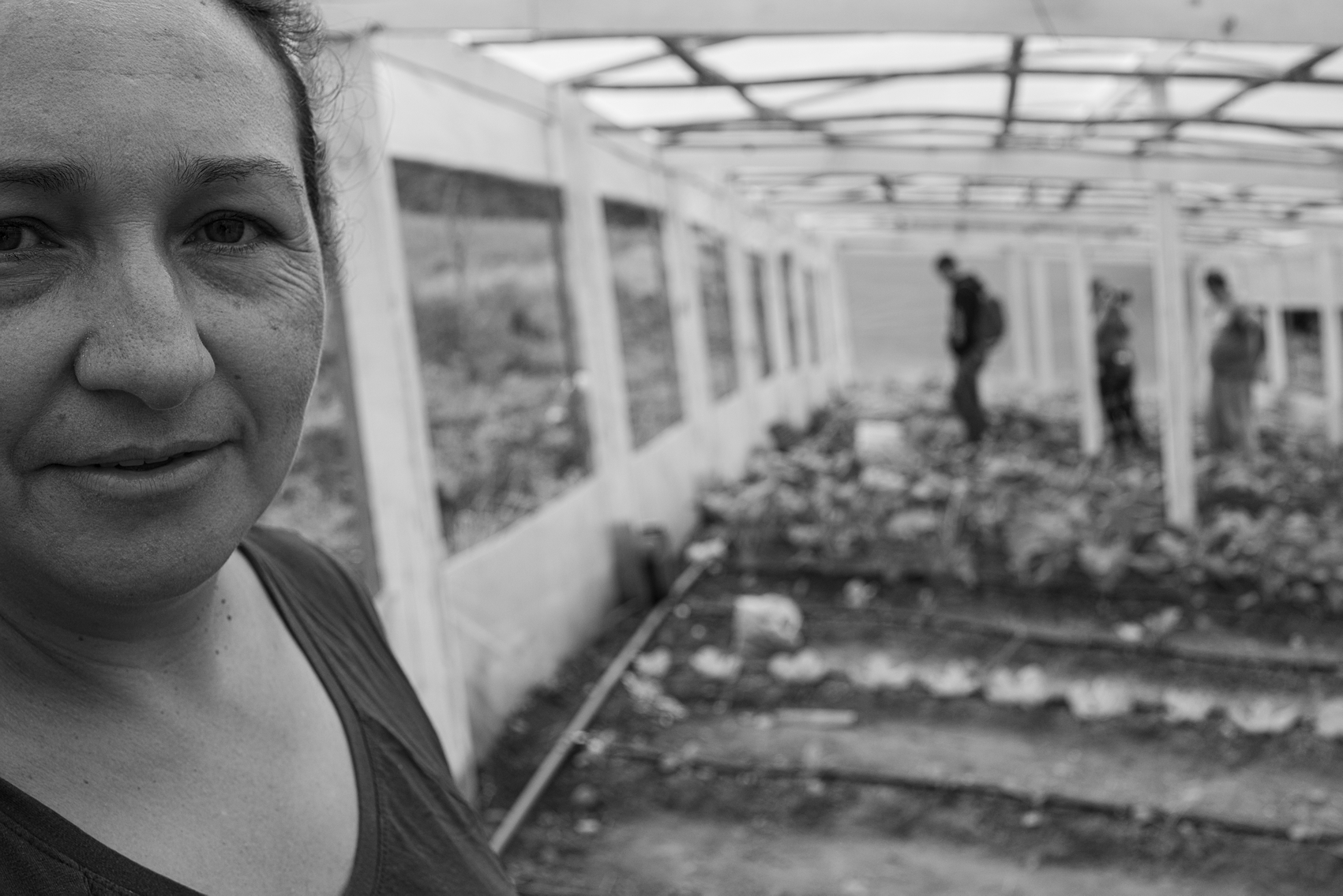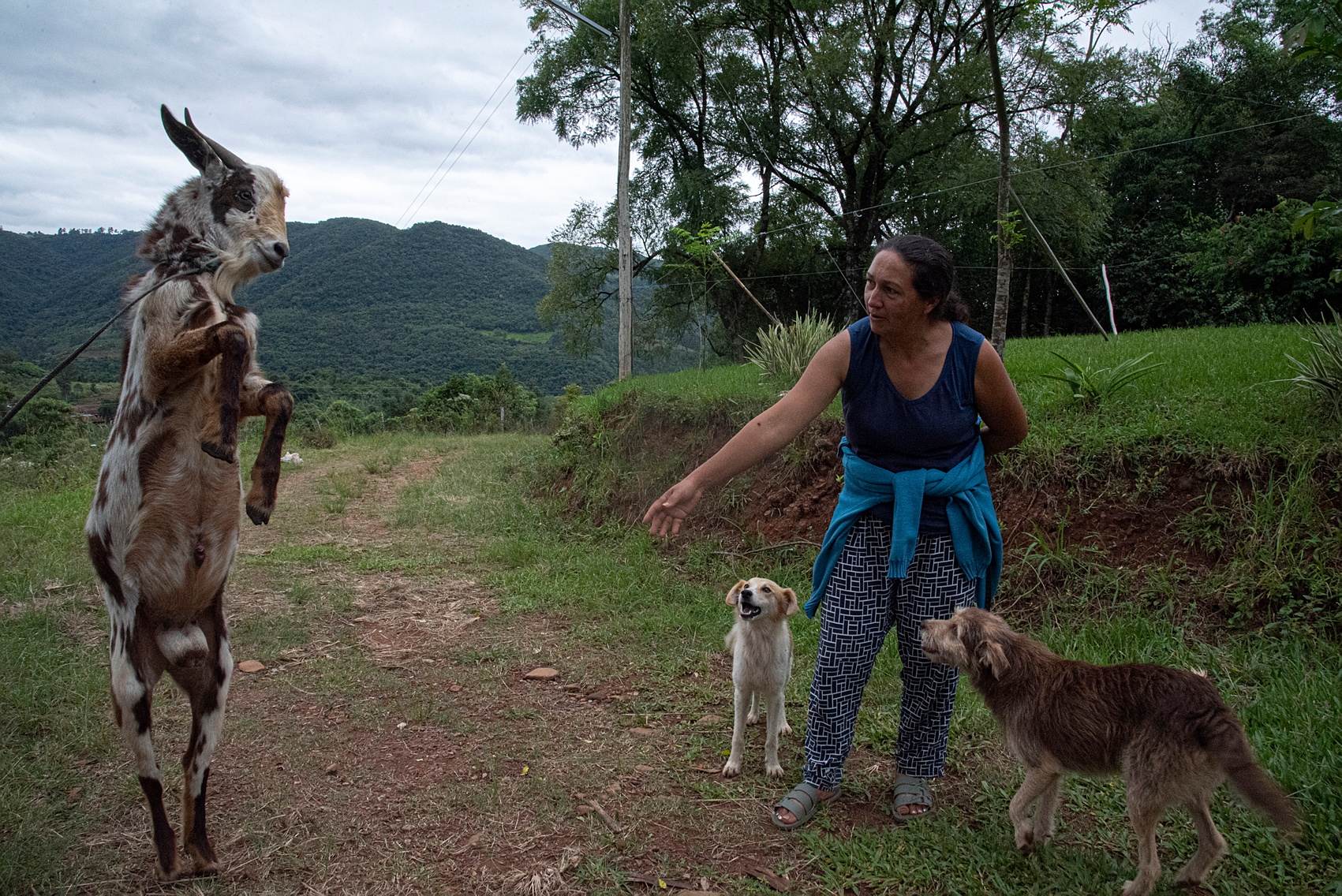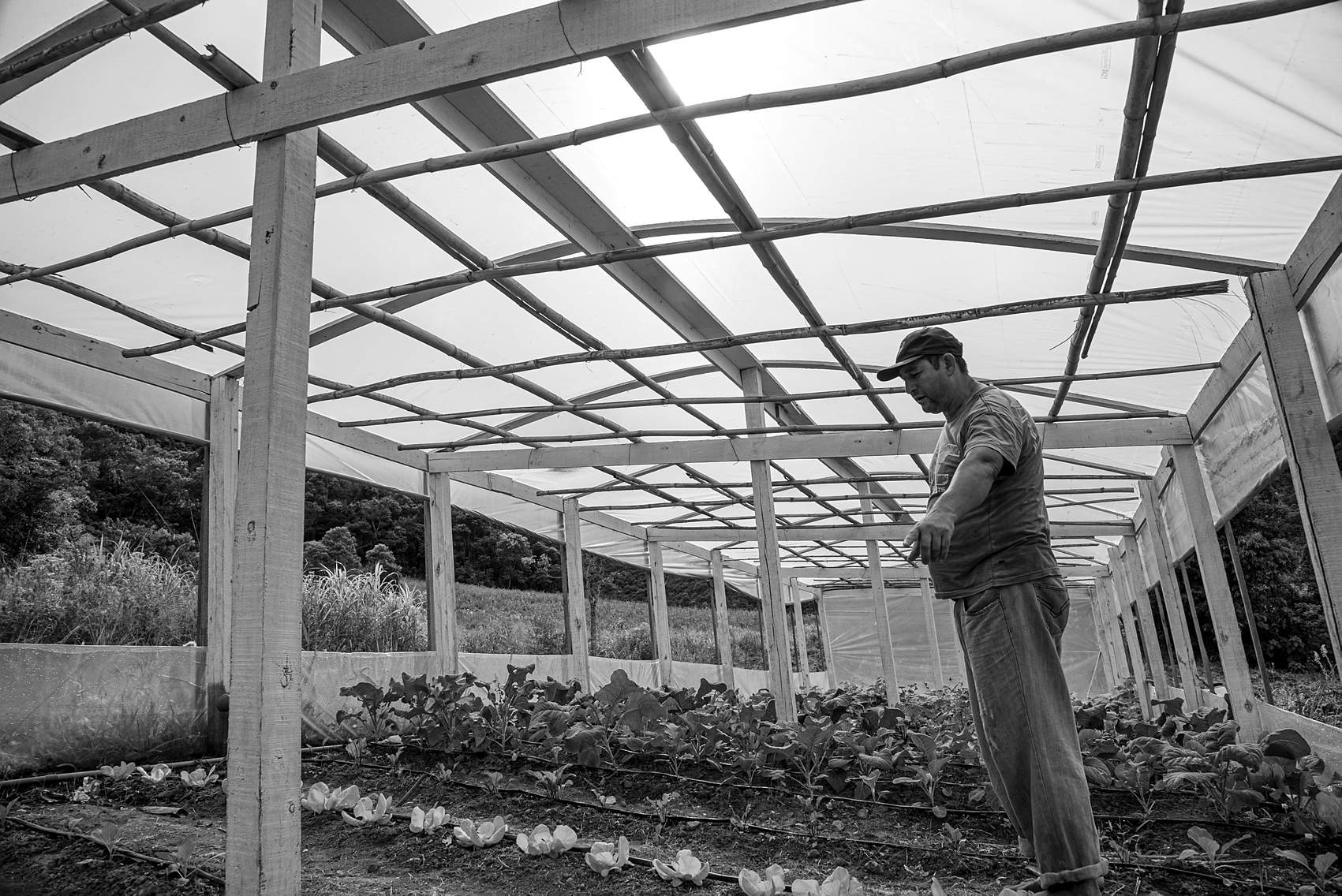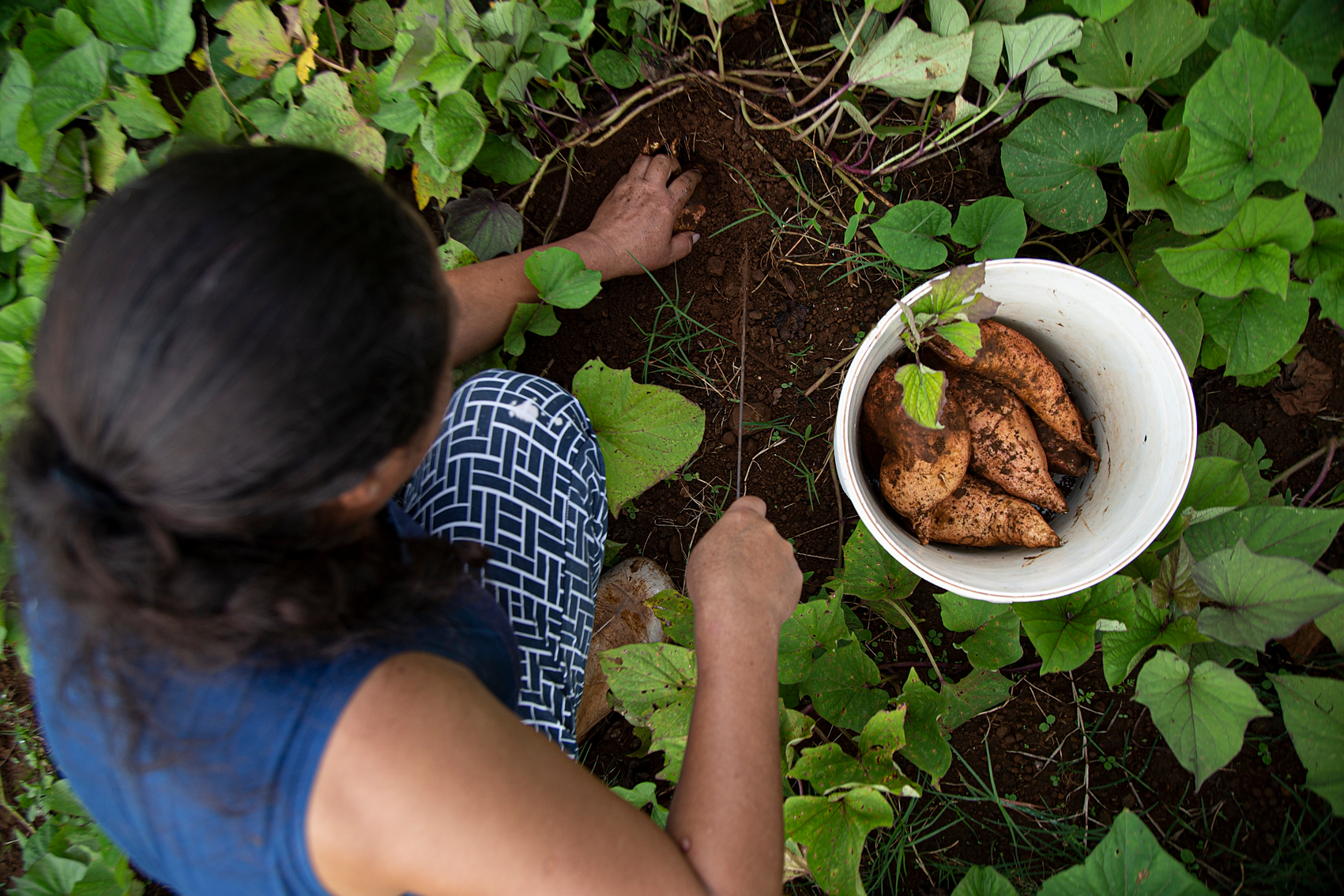
By Raquel Gurgel | 6 July, 2023
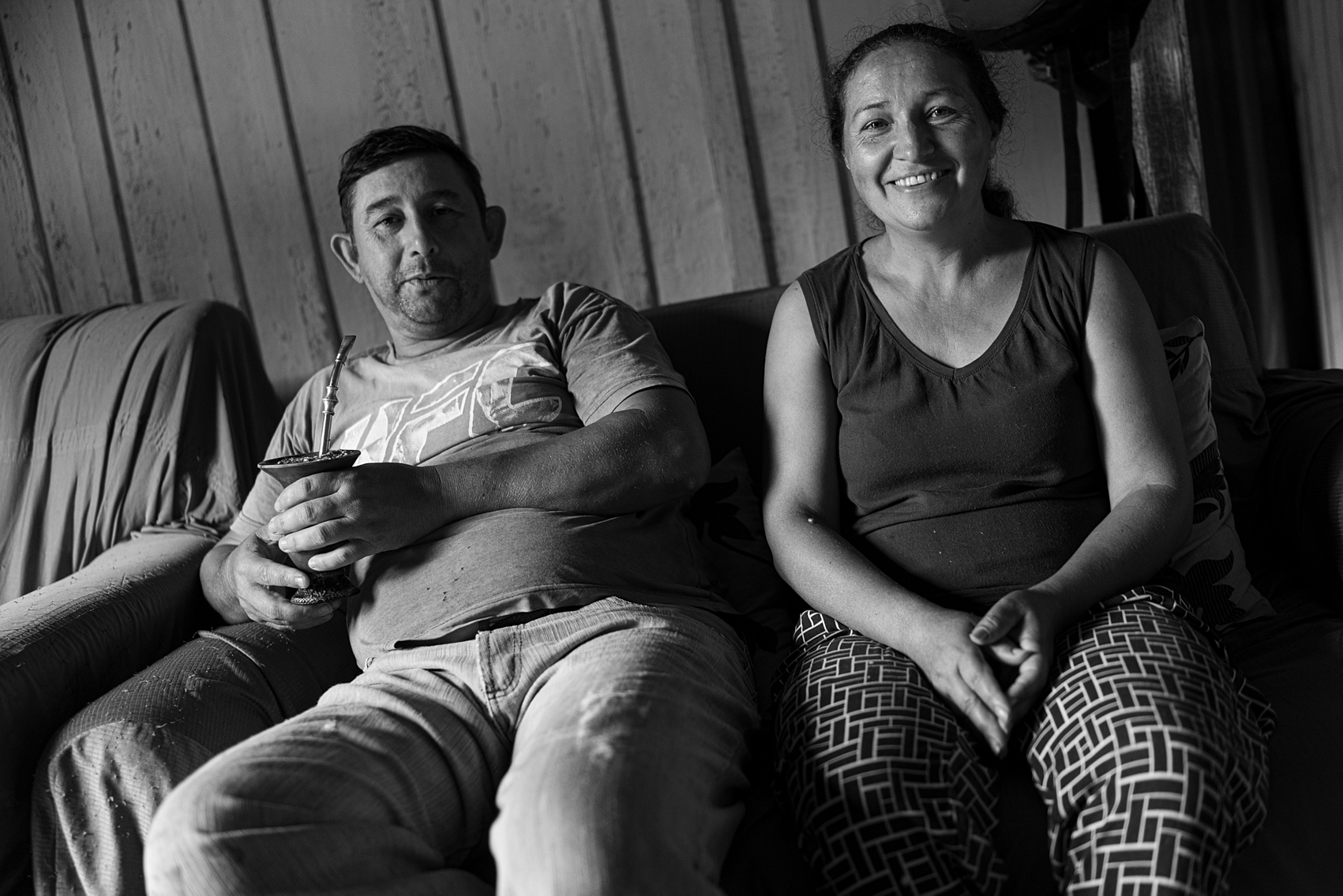
Tobacco farmers Celírio and Salete Silva. Photo by João Roberto Ripper - CETAB/Fiocruz
“If we were appreciated as food crop growers, we would definitely prefer to do that for a living”, says Celírio da Silva, who grows tobacco with his family in Sinimbu, a city of 10,000 people in the Brazilian state of Rio Grande do Sul. Despite being small, the municipality is one of the largest tobacco producers in the country, and many farmers in the region are tied to the tobacco industry.
Production in Brazil is based on an integrated system, with contracts between companies and farmers. Through these contracts, tobacco companies sell to farmers inputs such as seeds, chemical fertilizers, and pesticides (in general, farmers get into debt with the tobacco companies at the time of contracting, and must pay them back after selling them the tobacco leaves); establish the amount of tobacco to be planted; provide technical assistance; and commit to purchasing the entire production – the price is determined by the companies themselves only after the leaves have been harvested and cured.
Several studies (like this and this ones) show that often farmers’ income is lower than expected, and they end up caught in a debt trap.
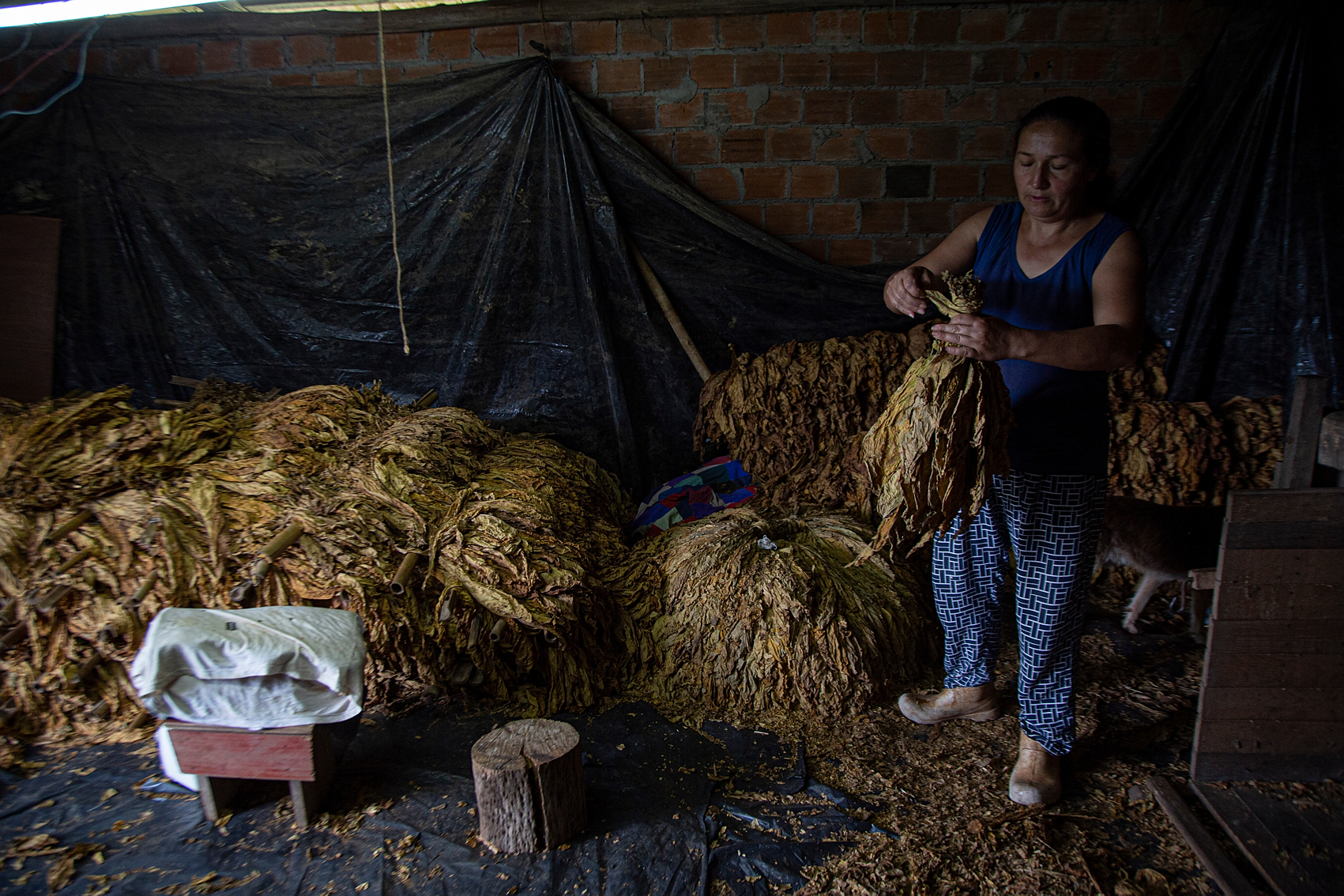
Celírio, who grew tobacco on the integrated system for 15 years, is very critical of this model, which he abandoned about 8 years ago, starting to grow tobacco on his own – he buys the inputs himself and, at the end of the cycle, gets in touch with companies to sell the cured leaves. To this day, he has not been able to pay off his debt with the company he signed contracts with years ago.
His family, like that of his wife, Salete Silva, has been growing tobacco for decades. Currently, everyone on the property – the couple and their 16-year-old daughters – is involved in this activity.
But they actually have a very diversified farm. The couple have always grown some food crops for daily subsistence, and in recent years began to expand this production and rescue Creole seeds. Both Celírio and Salete have a strong interest in sustainable crops, and Celírio is currently an undergraduate student in Agroecology at the State University of Rio Grande do Sul.
In 2021, the family was approached by a Brazilian tobacco company that was interested in signing contracts with farmers who would commit to growing tobacco without pesticides or herbicides. Like the larger companies, this one offered technical assistance, inputs, and the commitment to buy the cured leaves. But, in addition to that, it also offered better payments and a cash donation – not a loan – for Celírio and Salete to invest in crop diversification. The couple decided to accept the proposal, and have already harvested the first tobacco leaves grown without pesticides.
Tobacco production on their farm has declined, going from 80,000 to 30,000 plants per year. When considering the farm area, tobacco takes the smallest share: about 30%, while 70% is destined for food crops such as beans, cassava, maize, potatoes, sweet potatoes, vegetables in general, as well as livestock.
Despite having a diversified farm, the family still earns most of their income from tobacco. According to Celírio and Salete, there are important obstacles to selling all the food they grow: in general, rural properties like theirs are far from urban centers (and hard to reach), and products don’t have a ready market. Meanwhile, tobacco companies commit to buying all the cured leaves – and farmers don’t even have to leave the property to sell them. “Because of that, we hardly ever sell food”, says Salete.
“We think a lot about health – our own health and that of other people –, and that's why we really wanted to stop growing tobacco. It is much more strenuous for farmers than growing food,” says Celírio, adding that he has already developed skin problems due to pesticides and that he has sometimes had the Green Tobacco Sickness – a nicotine poisoning that occurs while handling tobacco plants, generally during the harvest. “Furthermore, tobacco is a product that cannot be eaten and that is harmful to consumers. We ourselves do not smoke – I have never smoked. But we have to make a living”.
*
The information and views set out on this news are those of the author(s) and do not necessarily reflect the opinion of the Parties to the WHO Framework Convention on Tobacco Control (WHO FCTC), the Parties to the Protocol to Eliminate Illicit Trade in Tobacco Products, or the Secretariat of the WHO FCTC.

